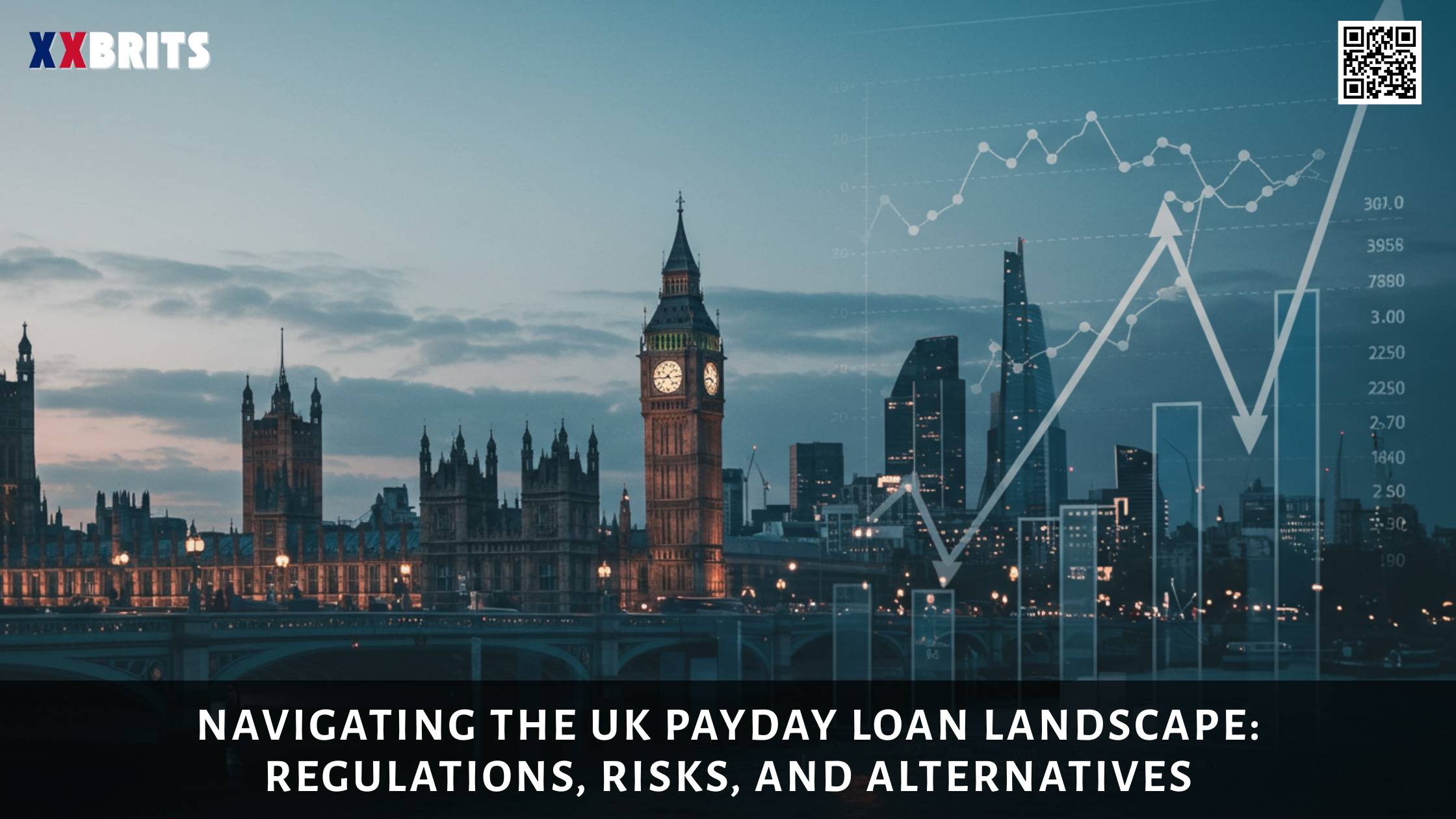Navigating the UK Payday Loan Landscape: Regulations, Risks, and Alternatives

In the UK, payday loans have long been marketed as a lifeline for those facing sudden financial pressure — from emergency bills to short-term income gaps. While they promise convenience and fast access to cash, they’ve also been linked to debt spirals, emotional distress, and financial exclusion. Over time, regulatory crackdowns have attempted to balance consumer protection with access to credit.
In the UK, payday loans have long been marketed as a lifeline for those facing sudden financial pressure — from emergency bills to short-term income gaps. While they promise convenience and fast access to cash, they’ve also been linked to debt spirals, emotional distress, and financial exclusion. Over time, regulatory crackdowns have attempted to balance consumer protection with access to credit.
Websites such as kiiredlaenud.ee provide overviews of fast loan options, but not all payday loans are created equal — especially in terms of risk, fees, and long-term consequences.
This article explains what payday loans are, how they work, what risks they carry, and what safer alternatives are available today.
What Are Payday Loans?
A payday loan is a short-term, high-cost loan designed to be repaid in full on your next payday. Borrowers typically take out sums between £50 and £1,000 and must repay the full amount, including fees and interest, within a few weeks.
These loans are often used to cover emergency expenses like rent, utility bills, or car repairs. While approval is quick — often within hours — the cost of borrowing is high. Before regulation, lenders routinely charged annual percentage rates (APR) of over 1,000%, and even now, some short-term credit can be expensive if not carefully reviewed.
Because of the short repayment window and high fees, many people found themselves unable to pay back their loans on time, leading to repeat borrowing and increased financial stress.
How the Payday Loan Market Has Changed
The payday loan sector in the UK peaked around 2013, when over 10 million loans were being issued annually. However, that rapid growth came with a surge in complaints. Many borrowers said they were being approved for loans they couldn’t afford, and some ended up owing several times the original amount borrowed.
A wave of public concern prompted action from the Financial Conduct Authority (FCA), which took over regulation of the industry in 2014. In January 2015, the FCA implemented strict rules that reshaped the entire sector.
FCA Regulations on Payday Lending
To tackle harmful lending practices, the FCA introduced a series of measures to make payday loans fairer and safer:
- A cap on daily interest and fees at 0.8% of the amount borrowed
- A default fee limit of £15 if you miss a repayment
- A total cost cap, ensuring no borrower pays more than double the original amount borrowed
- Mandatory affordability checks before lending
- Limits on loan rollovers and tighter rules on advertising
These rules led to the closure of major payday lenders and shifted the market toward more responsible lending. However, even with improved oversight, payday loans are still accessible — and potentially harmful — for people in crisis.
The Risks That Remain
Despite improvements, payday loans still carry significant risks, particularly for financially vulnerable people.
- Debt Cycles
Borrowers who struggle to repay on time may find themselves caught in a loop of repeat borrowing. Each loan may seem like a solution, but fees and interest can quickly snowball into an unmanageable burden.
- Emotional Stress and Mental Health
High-cost debt can cause anxiety, depression, and even shame. Many people avoid asking for help, which worsens the problem. Studies have shown that borrowers who feel isolated are less likely to seek free advice or support from family and friends.
- Credit Damage
If payments are missed or delayed, payday loans can harm your credit score. This may affect your ability to get approved for other financial products such as mortgages, car leases, or even mobile phone contracts.
Who Uses Payday Loans?
Payday loans are most often used by:
- People in low-paid or unstable employment
- Individuals with poor or no credit history
- Renters and those living in high-cost areas
- Households with irregular income or limited savings
Surveys have found that many users are working full-time but living paycheck to paycheck. Without emergency savings, these borrowers are particularly at risk of using payday loans as a first resort instead of a last.
Safer Alternatives to Payday Loans
If you’re in urgent need of financial help, it’s worth exploring safer options before considering high-cost credit. Here are several alternatives that offer more stability:
1. Credit Unions
Credit unions offer small personal loans at significantly lower interest rates than payday lenders. They are not-for-profit and focus on supporting local communities. Many allow online applications and offer free financial advice as part of membership.
2. Government Budgeting Loans
If you receive benefits like Universal Credit or Income Support, you may be eligible for interest-free Budgeting Loans. These loans help cover essential expenses and are repaid gradually from your benefit payments. Details can be found via services like MoneyHelper.
3. Employer Support
Ask your employer if they offer early wage access or hardship loans. Some companies now partner with platforms that let workers draw earned income before payday — often with no interest. These programs are discreet, easy to use, and far safer than payday loans.
4. Debt Advice Charities
Charities such as StepChange provide free, confidential debt advice. They can help you build a realistic repayment plan, manage creditors, and identify grants or benefits you may be entitled to.
Although the UK payday loan industry has changed significantly over the past decade, it still poses risks to those in vulnerable financial situations. Regulatory reforms have reduced the worst abuses, but the core problem remains: people with limited options may still reach for high-cost credit during times of stress.
It’s essential to be aware of the alternatives that offer support, dignity, and sustainability. Whether through government programs, nonprofit lenders, or employer schemes, there are better ways to manage short-term financial challenges without getting trapped in long-term debt.
Source: https://xxbrits.uk/


